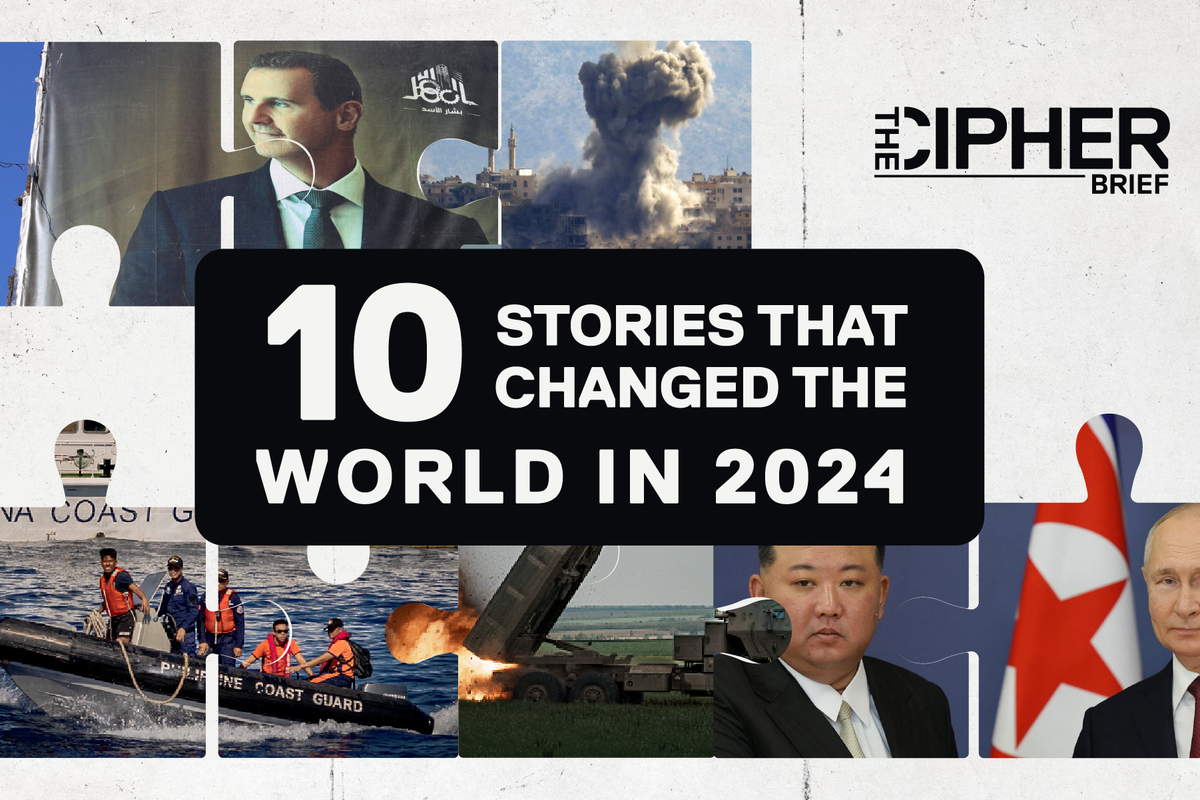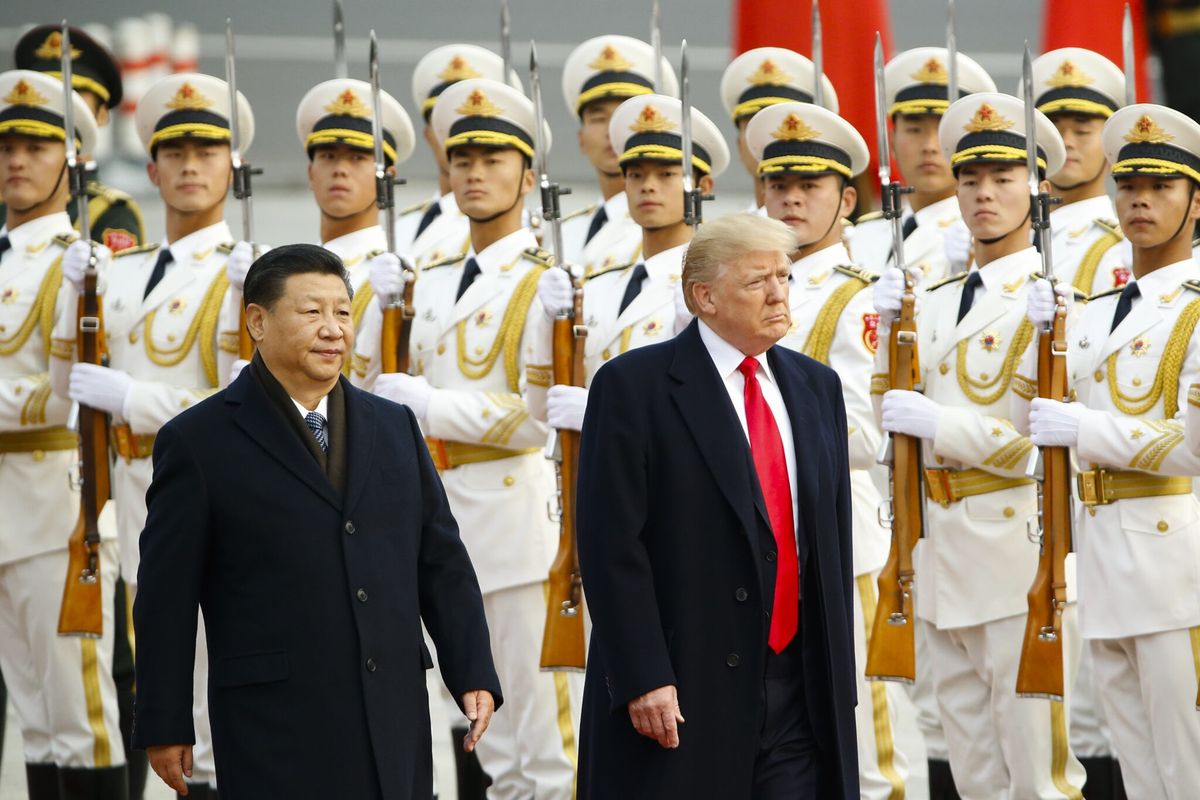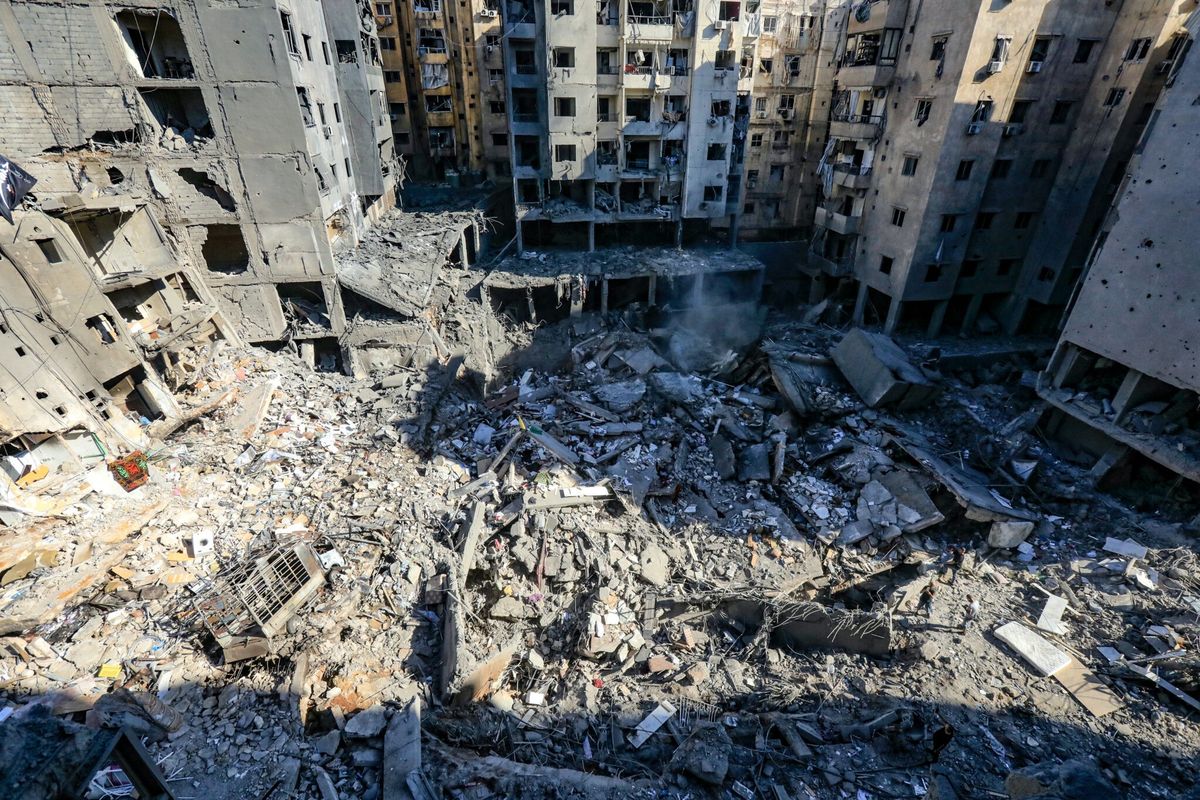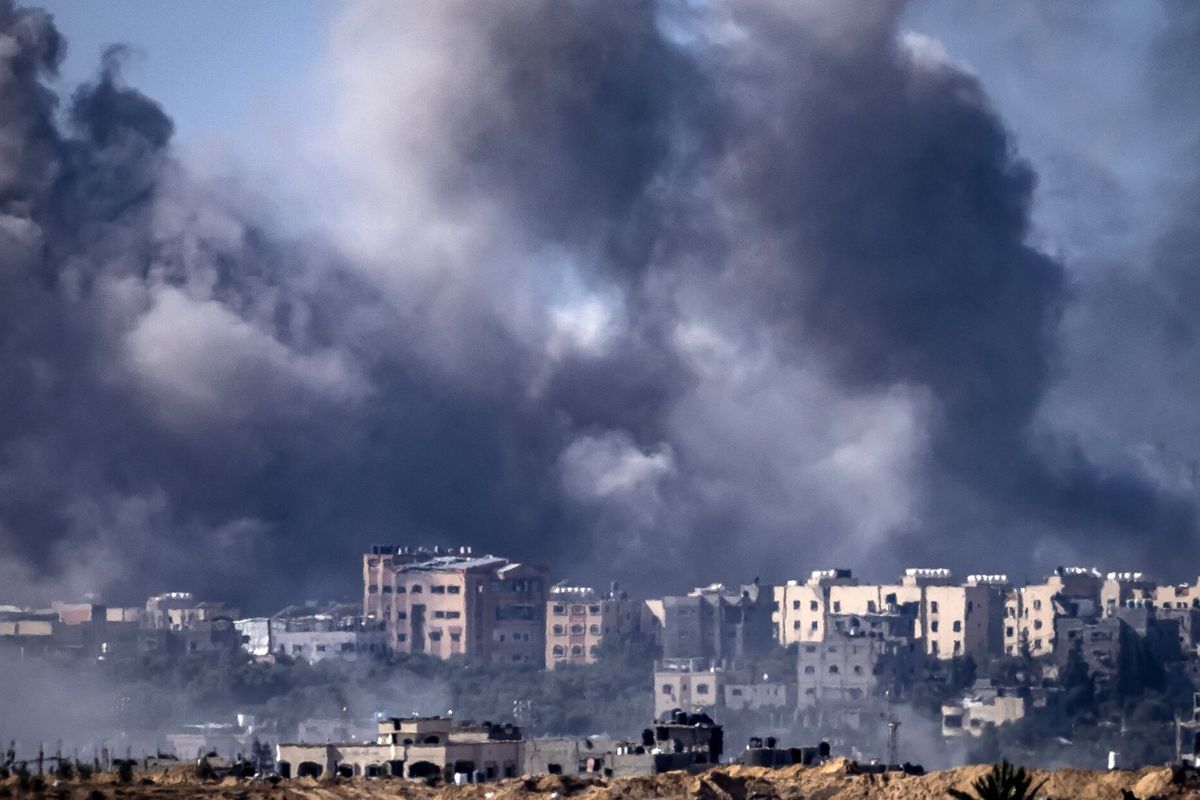SUBSCRIBER+ EXCLUSIVE REPORTING — For nearly a week, the Middle East and much of the world were on a knife’s edge, waiting for a promised Israeli retaliation to the April 13 attacks carried out by Iran. When the response came early Friday, in the form of drone strikes near the Iranian cities of Isfahan and Tabriz, there was a collective sigh of relief in Washington, the capitals of Europe and in the Middle East as well.
The Israelis hit a military air base near the city of Isfahan, in central Iran, and Iranian officials said another group of drones had been shot down in the Tabriz region, some 500 miles north of Isfahan. But Iran reported no Israeli warplanes in its airspace, no heavy bombings, and only minimal damage. Perhaps as important, there were no inflammatory statements from either side. For the moment at least, it appeared the much-feared escalation and wider war had been avoided.
“Limited strike, very muted, carefully calibrated, would be the phrases that come to my mind,” Cipher Brief expert and former NATO commander Admiral James Stavridis told MSNBC Friday.
“They could have gone big, gone after the Iranian nuclear facilities,” Adm. Stavridis said. “They certainly have that capability. They chose something kind of in the middle, but really on the small-scale side.”
By the end of the day Friday, this much was clear:
On the one hand, the Israeli strikes were more than the White House had wanted. President Joe Biden, in a phrase repeated by many observers throughout the week, had urged Prime Minister Benjamin Netanyahu to “take the win”, referring to the near-perfect defense against Iran’s strikes, and the fact that the Iranian assault may have given Israel a boost in the community of global opinion. Having been excoriated for the high civilian toll and other aspects of its war in Gaza, Israel now appeared as the victim of a sweeping and unprecedented Iranian strike.
But if Israel ignored the White House in one way, in another, Friday's response suggested it had heeded the calls for a limited response. The drone strikes were a far gentler counterpunch than many had feared, and indicated that Netanyahu and his war cabinet had understood the risks and heard the messages from Washington and elsewhere. As Adm. Stavridis and others noted, Israel could have inflicted far more damage than it did, and from a communications standpoint the absence of public statements was noteworthy. The only public comment from a cabinet member came from a clearly irritated Itamar Ben-Gvir, the far right-wing Minister of National Security, who took to X to vent that the strikes had been underwhelming. In a one-word post that was widely criticized by other politicians in Israel, Ben-Gvir said simply, “Lame!”
Not over yet?
But the absence of official government comment also meant it wasn’t clear, heading into the weekend, that the drone attacks were Israel’s full answer to last weekend’s Iranian strikes. In other words, the retaliation may not be over.
Cipher Brief experts had noted earlier in the week that Israel had a broad range of options available, and that those wouldn't necessarily be used in one stroke. Longtime senior CIA official Ralph Goff told The Cipher Brief that the Israelis might seek to keep Iran guessing when it came to the timing and range of responses.
“Keeping your adversary on their toes and keeping them off balance is a great tactic," Goff said. “They're going to be on the defensive because they're not going to know what’s coming or when.”
While Iran said publicly after the April 13 attacks that it considered the tit-for-tat engagement over, Israel said no such thing Friday. Other actions – cyberattacks, attacks against Iran’s proxies, or even another strike inside Iran – may remain on the table.
The sky-high tensions had been sparked by an unprecedented series of events: the first-ever military strike by Iran against Israel; a push by the U.S. and other countries to convince Israel to refrain from any retaliatory attack; and vows from Israeli leaders to ignore that advice. Prime Minister Benjamin Netanyahu said Wednesday that Israel would “do whatever is necessary to defend itself," and Yuli Edelstein, who chairs the Knesset Foreign Affairs and Defense Committee, said Israel would "teach [Iran] a lesson that you can’t attack a sovereign country just because you find it doable."
For the moment, however, officials and analysts seemed assured that the worst-case scenarios were no longer in play. Financial and oil markets rebounded Friday; prior to the drone strikes, Dow futures were down by as much as 300 points, and they finished the day up more than 200 points.
What comes next
It may be the case, as Cipher Brief expert Glenn Corn said just hours before Israel launched its drone strikes, that what follows will be a return to the long-running shadow war between Israel and Iran that has been fought, on and off, for decades. Israel has repeatedly attacked targets linked to Iran’s Revolutionary Guard Corps, its nuclear program and other institutions, almost never acknowledging such strikes publicly. Friday may have been one more such “shadow war” attack, with more in the offing.
“The big question here is not, ‘Do the Iranians respond in a big way?’ They don't,” said Eurasia Group CEO Ian Bremmer. “They've already signaled that that's not the intention. You've seen them downplaying the nature of these strikes on Iranian state media. So, this crisis, this proximate crisis between Israel and Iran is now in the rearview mirror. But going forward, what's the likelihood that we can stabilize this war, which is now well beyond just a matter of Israel versus Hamas?”
Adm. Stavridis said the coming days could see trouble on three fronts.
“One is (Iran's) proxies, particularly Hezbollah. A hundred thousand missiles available. Watch for that to perhaps ramp up a bit. Second, watch what happens at sea. The Red Sea and the Houthis, is that looking like more of a spike? And then finally, watch cyber. Look for potentially an escalation in the shadows in the world of cyber.”
The full-scale conflagration may have been avoided. The shadow wars may linger.
Read more expert-driven national security insights, perspective and analysis in The Cipher Brief













